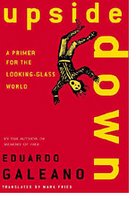Indians and Oil
 Like oil and water? Apparently not for some. Many first nations are involved in the oil and gas industry. For years we have heard of some of the oil-rich first nations in Alberta and last year, Fort Nelson First Nation in the northeastern part of BC actually bought part of their very own oil rig. That's Minister Neufeld (energy), Premier Campbell and former Chief Liz Logan looking all happy in the picture. Well, this Indigenous man finds it all very distressing and disgusting.
Like oil and water? Apparently not for some. Many first nations are involved in the oil and gas industry. For years we have heard of some of the oil-rich first nations in Alberta and last year, Fort Nelson First Nation in the northeastern part of BC actually bought part of their very own oil rig. That's Minister Neufeld (energy), Premier Campbell and former Chief Liz Logan looking all happy in the picture. Well, this Indigenous man finds it all very distressing and disgusting.I was reminded of the issue again at the recent 74th annual Native Brotherhood of British Columbia convention in Campbell River. A Tsimshian sister (who is also Chair of Ocean Industries BC) talked of the inevitability of offshore oil and gas development. Talk of inevitability and pragmatic acceptance of reality is what is truly accelerating the extinction of Indigenous people in these lands. Think about it. What are we really becoming? If not diabetics, alcoholics, drug addicts, gambling addicts, we are consumers, fitting in, becoming more equal with the settler society. The majority of our people have lost much of their Indigenous identity and not only are we not indignant about it any more, many embrace the non-Indigenous way of life and call it progress.
I have referred to the original testimony at the 1975 Berger Inquiry, of Fort Good Hope Chief Frank T'Seleie in a previous post. I won't quote him again, but encourage you to click on this link, hit the play button and listen yourself. Man, it still inspires me, even though I know he eventually sold out and now supports the current MacKenzie Valley Pipeline Initiative. Perhaps that is how it goes. Young grow older and become realistic. With so much pressure from the dominant settler society, perhaps people just give up. They forget who they are. They set aside not only their Indigenous ways of life but also their Indigenous values and principles.
Young Indigenous woman, young Indigenous man, will that happen to you?
With all the passion, respect and energy I can muster, I encourage you to remember. I encourage you to hold on to your dreams, your humanity and your Indigenous identity. If you lost it or never had it, go find it. It will save you. It will save this planet. Yes, it is counter-intuitive in this modern, consumer-mad society to look past the money and the jobs and the education. It is hard, and your own people will think you are crazy, but remember the young, and remember the old, the radicals still among us. Gather strength on the land, on the sea. Communicate with your ancestors and join the battle.
Make no mistake, those who would destroy your homes, lands, waters and way of life are powerful adversaries. According to Fortune magazine, of the most profitable companies on the planet, ExxonMobile ranked number 1, Royal Dutch/Shell Group number 2, and British Petroleum number 5. According to www.endgame.org, year 2000 revenues for ExxonMobile were $210,392,000,000; Royal Dutch/Shell Group were $149,146,000,000 and; British Petroleum were $148,062,000,000. These are among the largest corporations on the planet, larger than most countries. How much influence do you think they can afford to buy?
As long as we continue to define power in terms of money and neo-liberal politics we will lose. While I don't know many people who advocate for return to "500 years ago" and a complete return to the land, we cannot ignore the importance of a distinct Indigenous way of life and our connection to the land and water. By abandoning our way of life as much as we have, we have facilitated the destruction of our territories and identity. Losing our connection to the land completely is a death sentence for our nations. Perhaps it is impractical to call for a 100% return of and to the land, but I urge you to dream. Re-learn to think with an Indigenous mind and feel with an Indigenous heart and act now.
One of the most basic and fundamental Nuu-chah-nulth principles is embodied in the phrase, "Hish'ukish Tsa'walk" (Everything is one/connected). A full comprehension of this principle teaches us that we cannot support unsustainable development. We cannot support an industry that would threaten our watersheds with complete devastation. We cannont gladly shake the hands of corporations who use proxy governments (US, UK etc.) to wage wars all over the world, killing other Indigenous people. We cannot make the best of an inevitable corporate imposition by selling ourselves for a few jobs and money. We cannot accept this inevitability.
It is our responsibility to resist completely, not politely weigh the pros and cons. The Zapatistas have taught us that there is dignity in resistance. Sometimes you just have to say no. Enough is enough. Ya Basta!

Some links on resistance to oil and gas:
Arctic Indigenous Youth Alliance
Oil Free Coast
Living Oceans Society
David Suzuki Foundation


